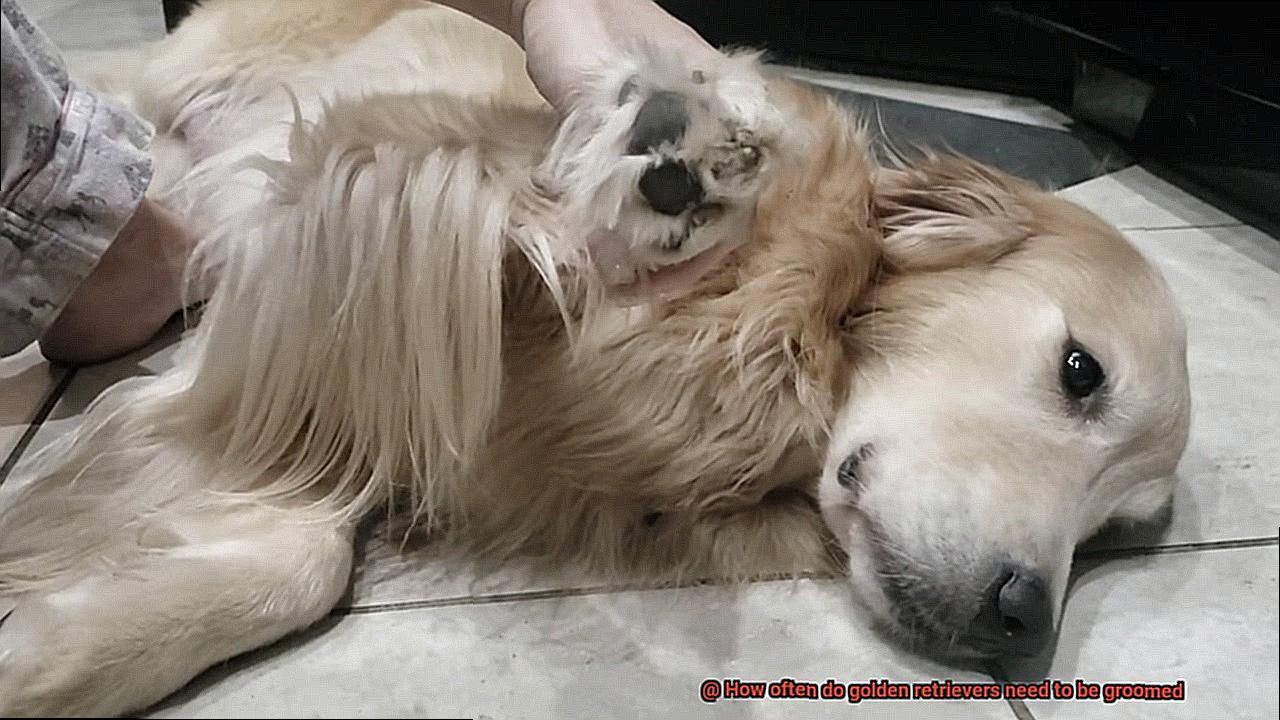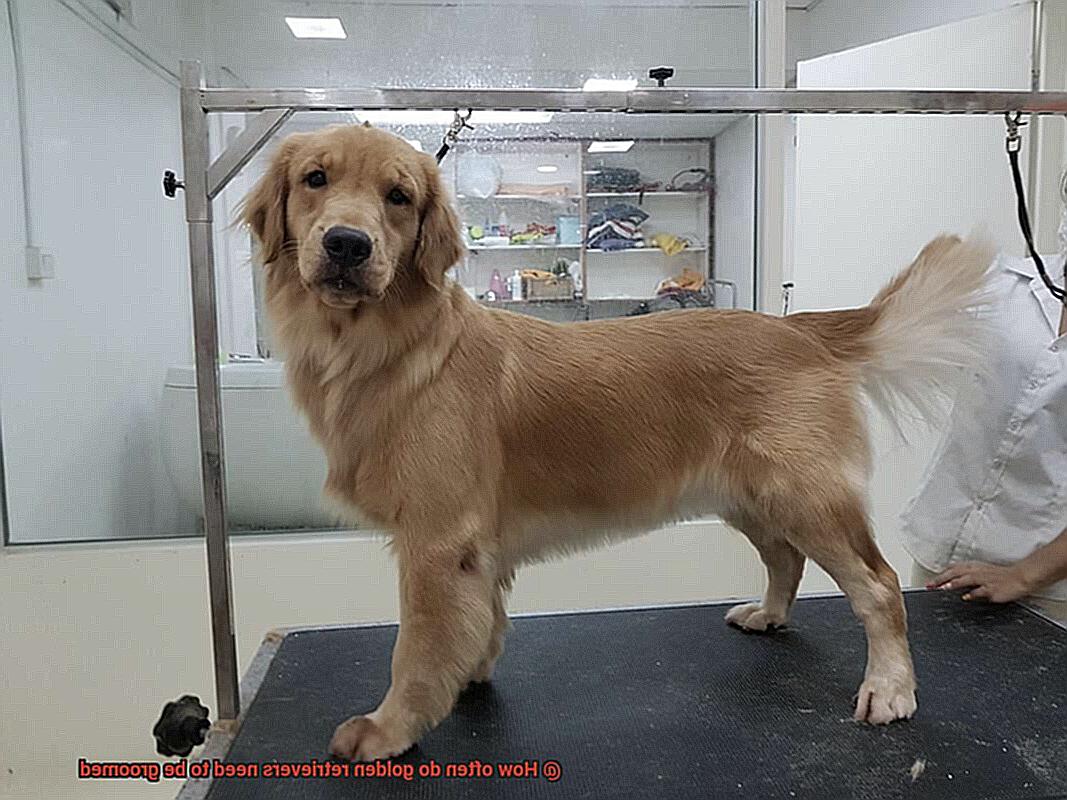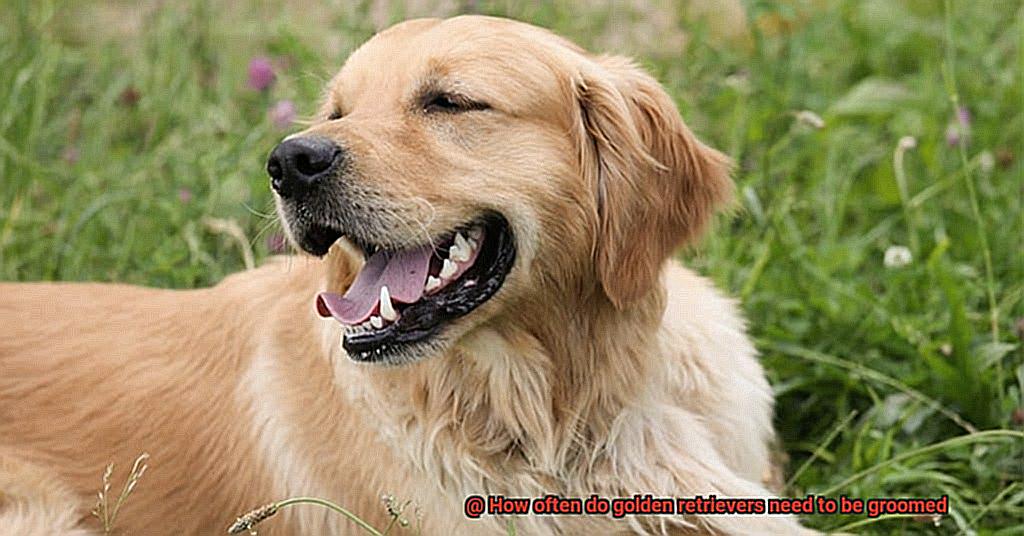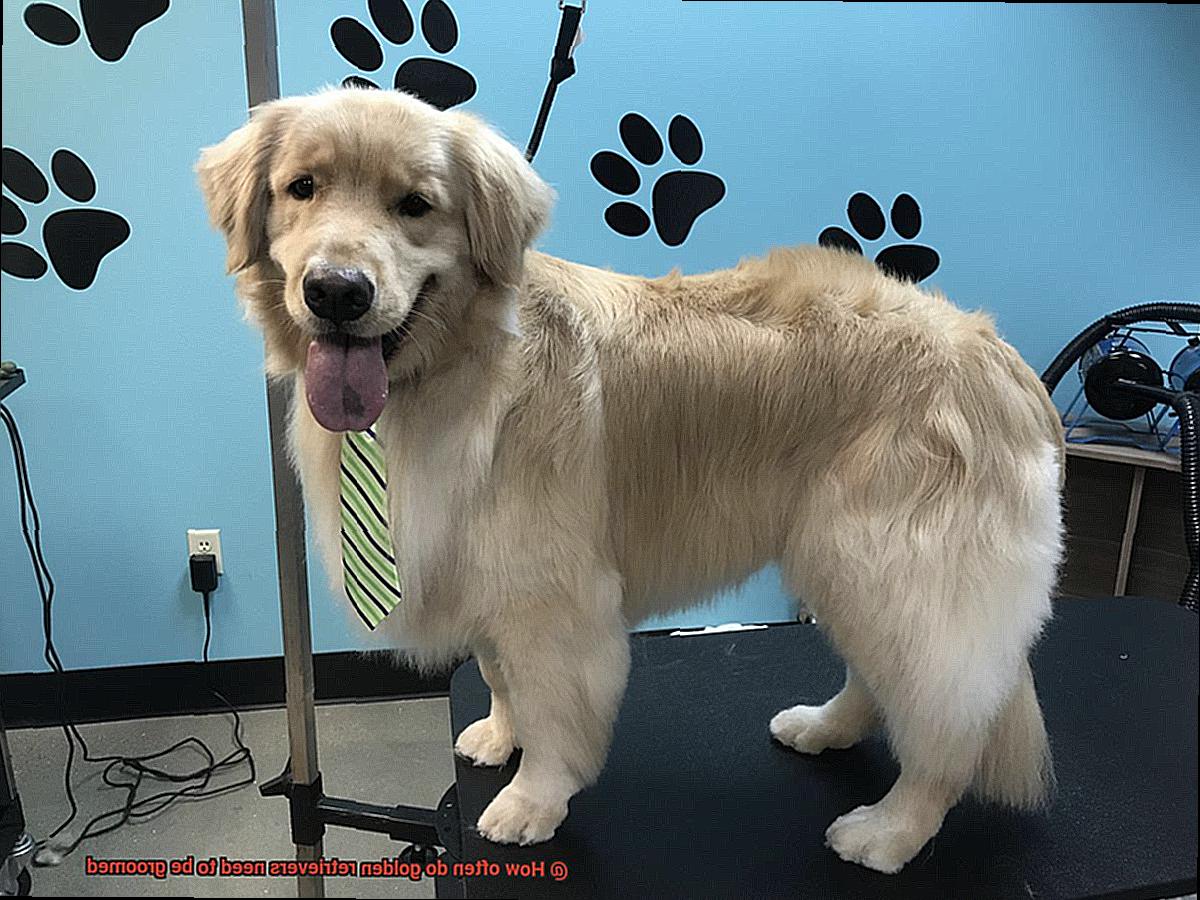Do you adore your Golden Retriever’s wagging tail and playful personality? As a responsible pet owner, you know that your furry friend’s well-being goes beyond just providing food and exercise. Proper grooming is an essential aspect of keeping your Golden Retriever healthy, comfortable, and happy. But how often should you groom your beloved pooch?
Golden Retrievers are known for their luscious coats that require adequate attention to maintain their shine and prevent skin infections caused by mats and tangles. However, the frequency of grooming varies depending on various factors unique to your pet. So, how do you determine the right grooming routine for your Golden Retriever?

In this article, we’ll explore everything you need to know about grooming your Golden Retriever – from bathing to brushing and trimming. We’ll also delve into factors such as coat length, activity level, and living environment that could affect how often you need to groom your furry friend. By the end of this informative read, you’ll have a clear understanding of how frequently to groom your Golden Retriever so that they always look and feel their best. So grab a cup of coffee, sit back, and let’s dive into the world of Golden Retriever grooming together.
Factors Affecting Grooming Frequency
Contents
Let’s dive deeper into these factors.
Coat Type
Straight coats are easy to maintain and only require grooming every three months. While they do not tangle or mat easily, it’s crucial to brush your Golden Retriever’s coat regularly to keep it healthy and shiny.
Wavy coats, on the other hand, require more attention. They are prone to tangling and matting, which can cause discomfort for your furry friend. To prevent this, use a slicker brush to groom your Golden Retriever at least once every two weeks, removing any mats or tangles that may have formed.
In addition to brushing, regular bathing is essential for both coat types. Give your Golden Retriever a bath every 6-8 weeks to keep their coat clean and free of bacteria or parasites. Remember to use a mild shampoo specifically designed for dogs.
Activity Level
Golden retrievers are known for their high energy and love for physical activities such as running, playing fetch, and swimming. But did you know that their activity level also plays a significant role in their grooming needs? As an expert on golden retrievers, I’m here to share some tips to keep your furry friend looking and feeling great.

For highly active dogs, it’s recommended to groom them at least once a week. This helps prevent their coat from becoming tangled and matted, which can lead to discomfort and even skin irritation. Regular grooming also helps distribute natural oils in their coat and promotes healthy skin. On the other hand, if your golden retriever is less active, grooming once every two weeks may be sufficient. However, it’s important to pay attention to their coat’s condition and adjust your grooming schedule accordingly.
Grooming isn’t just about brushing and bathing; it also includes nail trimming, ear cleaning, and teeth brushing. These activities should be done regularly based on your golden retriever’s needs and lifestyle. By taking the time to care for your furry friend’s coat, you’re not only keeping them looking good but also preventing potential health issues down the road.
Recommended Grooming Frequency for Golden Retrievers
Their luscious and fluffy coat is one of their most endearing traits, but it requires regular care to maintain its beauty and health.
Typically, the recommended grooming frequency for golden retrievers is once every 6-8 weeks. However, this may vary depending on individual needs such as coat length and thickness, level of activity, and age. Younger dogs tend to require more frequent grooming due to their high energy levels and shedding patterns.
Regular grooming not only keeps your furry friend looking fresh but helps prevent tangles and mats in their coat that can cause discomfort and skin irritation. It also promotes healthy skin and coat growth by distributing natural oils throughout their fur.
Grooming is more than just about appearances; it’s also about maintaining proper hygiene practices. Brushing their teeth regularly, cleaning their ears, and trimming their nails are essential parts of grooming that cannot be ignored. Neglecting these practices can lead to serious health problems down the line.
Benefits of Regular Grooming
Grooming is not just about aesthetics – it’s a crucial aspect of keeping your dog healthy and happy.

One of the most significant benefits of regular grooming is maintaining a healthy, shiny coat. Brushing your dog’s fur frequently removes dead hair and distributes natural oils throughout their coat, promoting healthy skin and fur. This not only makes your pup look good but also prevents matting, which can make them uncomfortable.
Regular grooming also allows you to check for any lumps, bumps, or skin issues that may require attention from a vet. Additionally, it helps with hygiene by keeping your dog’s nails trimmed and their ears clean to prevent infections.
But here’s the extra bonus: regular grooming can also provide emotional benefits for your dog. Taking the time to brush and groom your furry friend creates a stronger bond between you two. It gives you an opportunity to check on their overall well-being while providing them with some much-needed quality time and attention.
Dangers of Over-Grooming
Regular grooming is an important part of keeping your golden retriever healthy and happy, but it’s crucial to be aware of the dangers of over-grooming. In this article, we will explore the potential risks and how to avoid them.
While it’s important to keep your golden retriever’s coat clean and healthy, too much grooming can strip away natural oils, leading to dry skin and irritation. This can cause discomfort and even lead to infection if left untreated. So, it’s essential to strike a balance between maintaining hygiene and causing harm.

Over-grooming can also cause physical discomfort for your furry friend. Brushing too vigorously or for too long can cause pain and discomfort, especially if your dog has sensitive skin. This can lead to a negative association with grooming and make your dog reluctant to participate in the future.
Another danger of over-grooming is the risk of injury. Using tools incorrectly or brushing too aggressively can cause cuts, bruises, and even burns on your dog’s skin. Sharp tools like scissors or clippers can be particularly dangerous if not handled correctly. Always take extra care when using these tools.
To avoid these potential dangers, it’s important to pay attention to your golden retriever’s cues during grooming sessions. If they seem uncomfortable or in pain, stop immediately. By taking a gentle and mindful approach to grooming, you can help keep your furry friend healthy and happy.
Professional Advice for Proper Grooming Schedules
That’s why it’s important to understand the significance of proper grooming schedules and seek professional advice in creating one tailored to your dog’s needs.
Golden retrievers have a thick double coat that sheds heavily twice a year, necessitating regular grooming to maintain their coat’s health and appearance. A customized grooming schedule should take into account your dog’s lifestyle, coat type, and activity level.
Professional groomers recommend grooming golden retrievers every 6-8 weeks, which includes a bath, brushing, nail trimming, and ear cleaning. However, the frequency of grooming can differ depending on your dog’s coat length, thickness, and activity level. For instance, if your golden retriever spends a lot of time outdoors or swimming, they may require more frequent grooming to prevent matting and tangles.
Maintaining your golden retriever’s coat between appointments is also crucial. Daily brushing helps remove loose hair and prevent matting. Additionally, bathing them every 2-3 months with a dog-specific shampoo helps avoid skin irritation.

Working closely with your veterinarian and professional groomer is essential in developing a grooming schedule that accommodates your golden retriever’s specific needs. Regular grooming not only keeps their coat looking healthy and shiny but also prevents skin irritations and infections.
Also Read: Are Golden Retrievers high shedding?
Conclusion
To keep your Golden Retriever healthy, comfortable, and happy, proper grooming is a must. But how often should you groom your furry friend? Well, that depends on several factors unique to your pet. Coat length, activity level, and living environment are just a few of the factors that can affect how often you need to groom your pooch.
Generally speaking, it’s recommended that you groom your golden retriever every 6-8 weeks. This includes bathing, brushing, nail trimming, and ear cleaning. However, every dog is different and requires a personalized grooming routine.
It’s important not to overdo it though. Too much bathing or brushing can strip natural oils from their fur leading to dry skin and potential health issues. By taking into consideration coat type, activity level, seasonal changes, and health conditions when developing a grooming routine for your furry friend will help keep them healthy.
Regular grooming has numerous benefits for your Golden Retriever. It keeps them looking fresh while preventing tangles and mats in their coat that can cause discomfort and skin irritation. Plus it promotes healthy skin and coat growth by distributing natural oils throughout their fur.
But grooming isn’t just about physical benefits; it also provides emotional ones too. Regular grooming creates a stronger bond between you two while providing some much-needed quality time and attention for your furry friend.
If you’re unsure about how often to groom your Golden Retriever or what products to use, don’t hesitate to seek professional advice from veterinarians or professional groomers.









